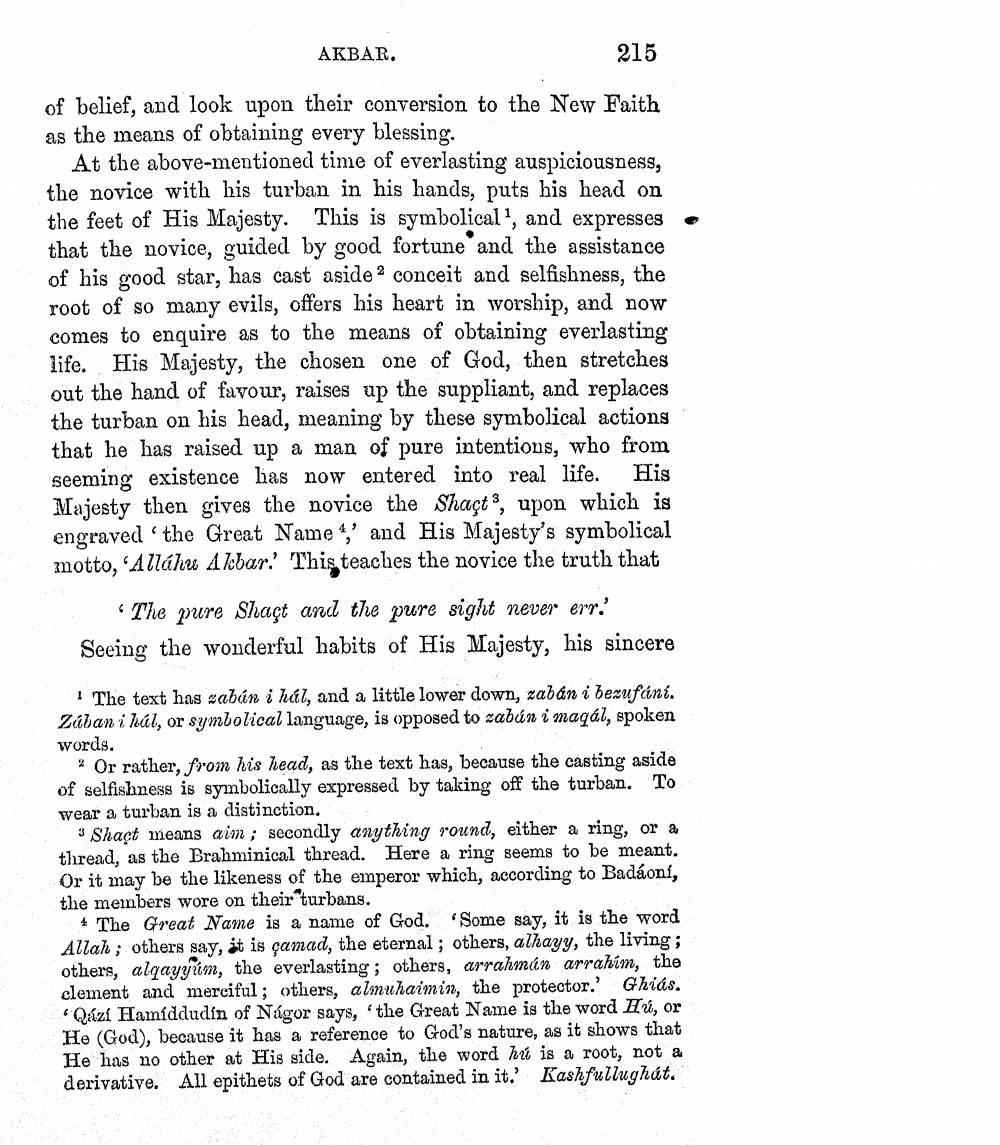________________
AKBAR.
215
of belief, and look upon their conversion to the New Faith as the means of obtaining every blessing.
At the above-mentioned time of everlasting auspiciousness, the novice with his turban in his hands, puts his head on the feet of His Majesty. This is symbolical", and expresses that the novice, guided by good fortune and the assistance of his good star, has cast aside a conceit and selfishness, the root of so many evils, offers his heart in worship, and now comes to enquire as to the means of obtaining everlasting life. His Majesty, the chosen one of God, then stretches out the hand of favour, raises up the suppliant, and replaces the turban on his head, meaning by these symbolical actions that he has raised up a man of pure intentions, who from seeming existence has now entered into real life. His Majesty then gives the novice the Shaçt", upon which is engraved the Great Name 4,' and His Majesty's symbolical motto, 'Allahu Akbar' This teaches the novice the truth that
The pure Shaçt and the pure sight never err.' Seeing the wonderful habits of His Majesty, his sincere
1 The text has sabán i hál, and a little lower down, zaban i bezufání. Zában i húl, or symbolical language, is opposed to zabún i maqál, spoken words.
> Or rather, from his head, as the text has, because the casting aside of selfishness is symbolically expressed by taking off the turban. To wear a turban is a distinction.
3 Shact means aim ; secondly anything round, either a ring, or a thread, as the Brahminical thread. Here a ring seems to be meant. Or it may be the likeness of the emperor which, according to Badaoni, the members wore on their turbans.
The Great Name is a name of God. Some say, it is the word Allah; others say, it is çamad, the eternal; others, alhayy, the living; others, alqayyum, the everlasting ; others, arrahmán arrahim, the clement and merciful; others, almuhaimin, the protector.' Ghias.
Qázi Hamiddudin of Nágor says, 'the Great Name is the word Iú, or He (God), because it has a reference to God's nature, as it shows that He has no other at His side. Again, the word hú is a root, not a derivative. All epithets of God are contained in it.' Kashfullughát.




